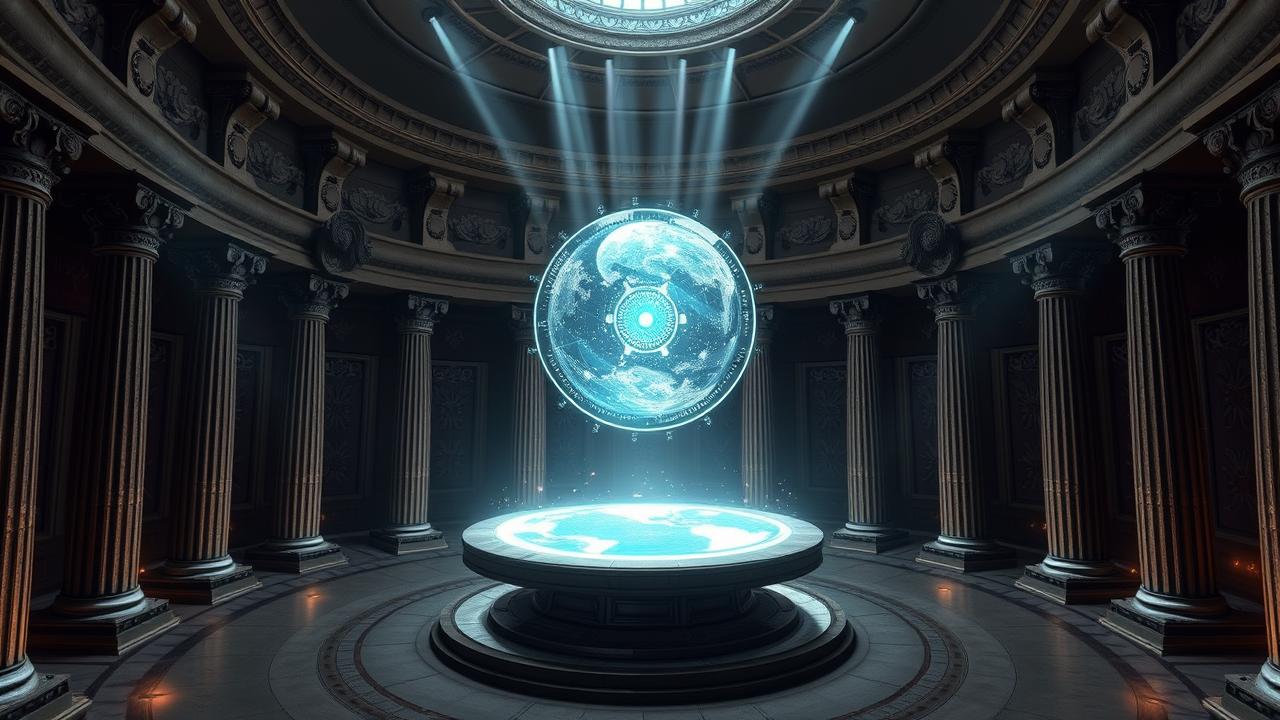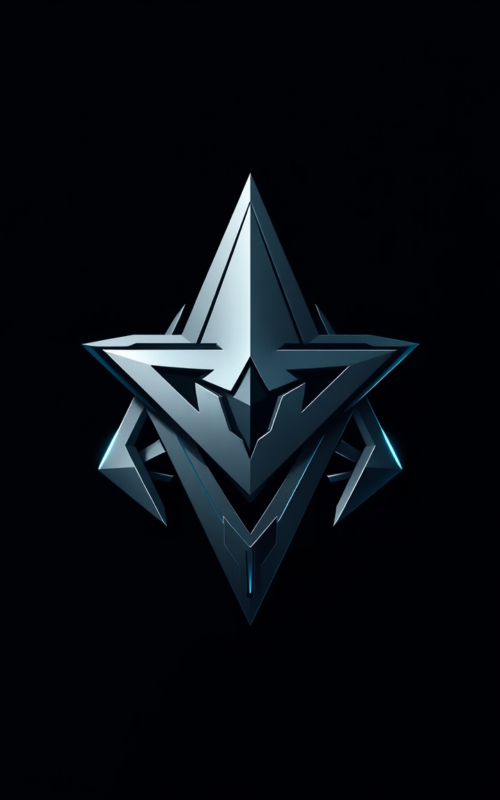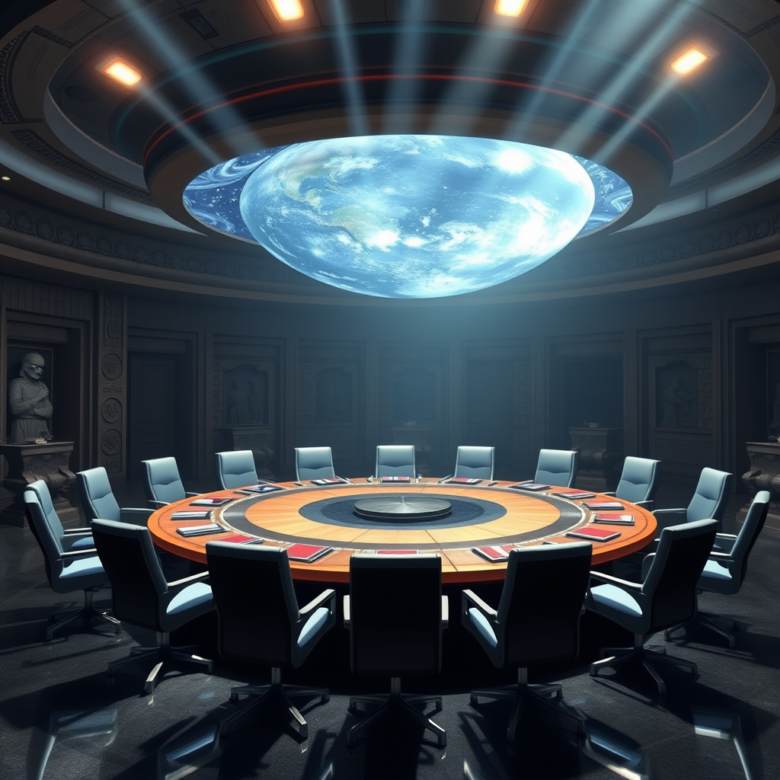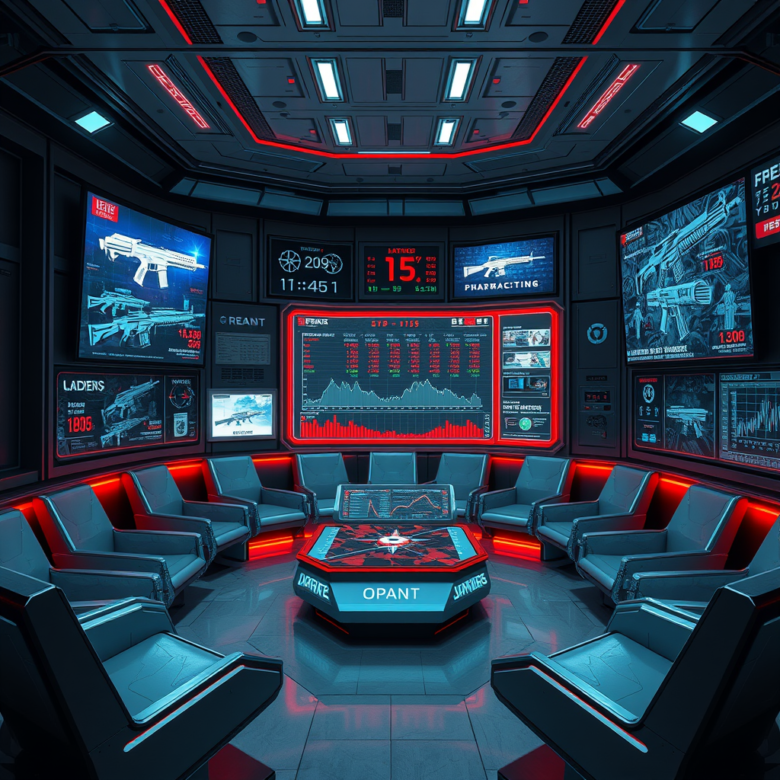The Pantheon of Power

Introduction
Power. The word itself trembles with ancient weight, carrying the echoes of a thousand worlds lost to time. It is the invisible force that threads through the fabric of existence, tugging at the hearts of beings across the universe, from the smallest whisper of a thought to the grand machinations of entire civilizations. Power is a strange thing—neither good nor evil, but simply… there, waiting for someone to grasp it. But, as with all things in this vast and infinite cosmos, power comes with a cost.
What is it, truly, to hold power in your hands? To bend the stars to your will? It is more than control—it is the belief that one’s vision can shape reality, that with enough strength, knowledge, or cunning, one can command the universe itself. It is the oldest dream, as old as the first spark of consciousness that flickered in the dark void of the cosmos. Yet, for all its allure, power remains elusive, slippery as stardust, ever-shifting in the hands of those who dare to claim it. Many have sought it, and many have been consumed by it. The nature of power is not to be held—it is to be chased, pursued through the eons, never quite fully possessed.
In the grand scale of the universe, what is power but a ripple in the fabric of time? Civilizations rise, their banners flying high, their ships casting long shadows across the stars, only to fall into ruin, their names forgotten by all but the oldest dust in the galaxy. The stars themselves, those ancient watchers, burn with an unfathomable light, indifferent to the struggles of the beings who cling to their warmth. And yet, to those who seek it, power is everything—a guiding force that shapes destiny, a compass pointing toward the impossible.
But the truth, as old as the universe itself, is that power cannot exist without conflict. It cannot rest, cannot be peaceful or content. It is a constant, driving hunger, a force that demands to be used. Those who possess it become its servants, bound to its will, unable to resist the call to reshape the world around them. And in the end, what is left of those who wield it? Are they remembered as heroes, tyrants, gods—or simply as dust? The universe does not care. It spins on, indifferent to the fleeting aspirations of those who seek to rule it. The stars burn, the galaxies turn, and all the while, power flows like a river, endlessly, from one hand to the next.
In this Pantheon of Power, we do not tell the stories of those who held it for a time, but rather the story of power itself—how it moves, how it consumes, and how it shapes the destiny of all who dare to grasp it. Here, in these echoing halls, you will find no absolutes, no simple truths. For power is neither good nor evil, but a force unto itself. It is a tool, a weapon, a dream, a curse, and a promise, all in one. It can build civilizations, or tear them down in an instant. It can elevate the lowliest of creatures to the height of godhood, or cast the mightiest of kings into the abyss. But always, always, it requires a price.
Cosmic in scale, eternal in nature, power does not care who wields it—it only seeks to be used. And those who dare to touch it must be prepared to pay the price, for power does not come freely. The universe is vast beyond comprehension, its secrets older than time itself, and within its endless expanse, power waits in the dark spaces between the stars, where light has never shone. It waits in the hearts of the ambitious, in the minds of the dreamers, and in the hands of those brave—or foolish—enough to reach for it.
And so, we find ourselves here, at the edge of the universe, looking into the vastness of the Pantheon of Power. A place where the essence of control, ambition, and dominance plays out across the endless stage of the cosmos. A place where the choices of a few shape the destiny of the many. But remember this: power is not a thing to be held, but a force to be reckoned with. It has no loyalty, no master. It shifts like the stars, always moving, always seeking, forever watching, waiting for those who will rise and fall in its wake.
And in the end, as the stars burn out and the universe fades, what will become of those who once held power? Will their names be etched into the very fabric of reality, or will they vanish like smoke on the wind, forgotten by time and history? That is the final question of power: Is it worth the cost?
The Chronicler
The Keeper of Stories

The Galactic Consortium
The Galactic Consortium stands as the towering monument of civilization, a beacon of unity amidst the chaos of the stars. Born from the ashes of a galaxy at war, it was founded on the principles of diplomacy, cooperation, and the collective security of its member worlds. Its architects envisioned it as the answer to the endless cycles of conflict, a central body that would bind planets together under a single banner of peace and progress. And for a time, it succeeded. Trade flowed freely, alliances formed, and the Consortium became the bedrock upon which galactic stability rested. But power, as it often does, comes with cracks. And now, as the unraveling of reality threatens the very fabric of the universe, those cracks are widening.
The Consortium did not begin as the powerhouse it is today. Centuries ago, during a time when the stars themselves seemed to tremble under the weight of war, a loose alliance was formed—born out of necessity rather than trust. Planets with little in common were forced to come together, to cooperate for their own survival. Over time, what began as a fragile coalition hardened into something more permanent, and the Galactic Consortium was born. It expanded, absorbed, and conquered—some planets joined willingly, others through less diplomatic means. But with each new world, the Consortium grew stronger, more centralized, and more entrenched in its own authority. Now, however, the Signal—an enigmatic force none can fully comprehend—has thrown everything into question. Planets that once relied on the Consortium for protection are beginning to wonder if it can still ensure their future.
Governance within the Consortium is, in theory, a balanced affair. A High Council, made up of representatives from each member planet, governs the vast federation. The council chambers on Vantara Prime are filled with the voices of diplomats, each one bringing the concerns of their world to the floor. But not all voices carry the same weight. The larger, wealthier planets—like the corporate behemoth of Neonara—wield disproportionate influence, their economic power skewing the Consortium’s supposed ideals of equality. Power rotates between the planets, but the truth is, bureaucracy reigns supreme. The High Council moves slowly, hindered by competing agendas and mired in inertia, as the unraveling of reality edges ever closer. Meanwhile, leaders like Councilor Lysara push for scientific inquiry into the cosmic threat, while others, like General Varkath, grow weary of endless debate and call for decisive military action.
And then, there is the corporate shadow that lingers over the Consortium—most notably through Neonara, a planet where profit reigns supreme. Behind the polished facade of diplomacy, corporate interests twist the Consortium’s ideals into something unrecognizable. Figures like Rina Al-Torrin, backed by the powerful CEO Valen Kroth, advocate for deregulation, for an economy driven by wealth rather than principle. This is the silent war within the Consortium: the battle between those who still believe in the vision of collective security and those who see the unraveling as an opportunity to reshape the galaxy in their own image. In the Pantheon of Power, the Galactic Consortium is a grand stage where ideals are contested, ambitions are born, and the future of the universe hangs in the balance.
The Free Worlds Alliance
The Free Worlds Alliance is a living testament to the power of independence, a coalition of worlds that have chosen to stand apart from the centralized authority of the Consortium and the corporate grasp of Neonara. Each planet in the Alliance is a singular star in the night sky—brilliant, unique, and fiercely autonomous. What binds them together is a shared belief in self-determination, a rejection of the suffocating structures that seek to control every facet of life. They are workers, dreamers, rebels, and outcasts, united by the idea that freedom is worth fighting for, even if that freedom comes at a cost. Yet, for all their ideals, unity within the Alliance is as tenuous as a flame in the wind. Each member world harbors its own vision of what freedom should look like, and those visions do not always align.
The Alliance was born in defiance. As the Consortium’s power grew and its reach extended into every corner of the galaxy, there were those who refused to be folded into its bureaucratic machine. Planets that valued their independence, their culture, and their way of life came together, not out of desire, but out of necessity. What started as a loose band of defiant worlds soon became a formidable force, a counterbalance to the Consortium’s expansionist agenda. Yet even in their opposition, the Alliance has struggled to maintain cohesion. The unraveling of reality, marked by the appearance of the mysterious Signal, has only deepened these fractures. Some worlds see this cosmic event as a warning, a sign that they must come together or face oblivion. Others cling to their autonomy with even greater fervor, unwilling to sacrifice their independence in the face of uncertainty.
The Free Worlds do not operate under a single banner of leadership. There is no grand council that dictates the course of the Alliance. Instead, power shifts like the tides, rotating from one planet to the next, with each world’s leader taking their turn to steer the ship, often into stormy waters. Decisions are made through consensus, but consensus, as anyone who has lived in a free society knows, is difficult to achieve. The council chambers of the Free Worlds are filled with voices of dissent and debate, each one convinced of their path forward. Now, as the unraveling accelerates, the divisions run deeper than ever. Some leaders, like Governor Teren of Axathis, urge for unity, believing that only by standing together can they withstand the cosmic forces tearing at the edges of the universe. Others, such as the rogue leaders of Corsaris, are content to exploit the chaos for their own gain, playing both sides in a bid to secure their survival.
What truly defines the Free Worlds Alliance is its relentless pursuit of freedom, even in the face of the unknown. To them, the unraveling is not just a cosmic threat—it is a test of their ideals. Will they band together, forsaking some of their hard-won independence to face the greater crisis, or will they continue to drift apart, each world pursuing its own path in isolation? The future of the Alliance hangs in the balance, as do the lives of those who live under its protection. The Signal, mysterious and terrifying, looms over them all. To some, it is a harbinger of doom, while to others, like Eldrin Voss of Eldria, it represents a cosmic imbalance that can be healed. The Free Worlds face a choice: to continue their struggle for autonomy, or to find a new path, one that may require them to sacrifice what they hold most dear. Whatever path they choose, their legacy will be written in the stars.


The Corporate Syndicate
Power takes many forms. For some, it lies in control over fleets and armies, for others, in the hearts and minds of their people. But for the Corporate Syndicate, power is simple—it’s profit. Cold, unfeeling, and relentless, the Syndicate’s influence stretches across the galaxy like a spider’s web, invisible to most but inescapable once caught. They are not a military force, nor are they a coalition of worlds, but make no mistake—they hold the galaxy in their grasp. Through their stranglehold on trade, infrastructure, and technology, the Syndicate pulls the strings behind the scenes, manipulating the Consortium and eyeing the Free Worlds with the same predatory gaze. To them, the unraveling of reality isn’t a crisis—it’s an opportunity, a goldmine waiting to be exploited.
The origins of the Corporate Syndicate are rooted in dissatisfaction, not with governments, but with the restrictions they placed on commerce. These megacorporations, Kronatech, SysNet, Pinnacle Pharmaceuticals, and others, grew tired of bowing to regulations that limited their profits. They pooled their immense resources, leveraging their control over key industries to effectively form a government within a government. Their influence inside the Galactic Consortium grew quietly, like a weed in a garden, until they became a power in their own right, one that could no longer be ignored. As the unraveling worsens, the Syndicate has made no secret of its ambitions: control the signal, manipulate the chaos, and position themselves as the dominant force in the galaxy. They have no interest in stopping the unraveling—only in ensuring they profit from it.
The Syndicate is governed not by ideals, but by numbers. Its leaders, the CEOs of the galaxy’s largest and most ruthless corporations, sit on a Corporate Council where decisions are made based solely on market dominance and profit margins. Ethics are an afterthought, if they are considered at all. Kronatech, for instance, supplies weapons to both sides of galactic conflicts, their loyalties for sale to the highest bidder. Pinnacle Pharmaceuticals offers life-extending treatments at exorbitant prices, while conducting unsanctioned experiments in the name of “innovation.” And then there’s SysNet, which controls the galaxy’s digital infrastructure and, by extension, the flow of information itself. The Syndicate’s reach is vast, and its methods are brutal, but effective. Where others see chaos, they see market potential. The Signal, that mysterious cosmic anomaly driving the unraveling, is their ultimate prize—a force they intend to harness, not to save the galaxy, but to dominate it.
At the heart of the Syndicate’s power lies Neonara, a dystopian corporate stronghold where the elite live in unimaginable luxury, while the masses toil away in near-slavery conditions. It is both the pride of the Consortium and its greatest headache, a planet whose wealth keeps the Consortium afloat, but whose corporate overlords resist any attempt at control. Figures like Rina Al-Torrin and Valen Kroth wield their influence with ruthless precision, bending the Consortium’s politics to serve the Syndicate’s agenda. And now, with the galaxy teetering on the brink of collapse, the Syndicate looks outward. Planets within the Free Worlds Alliance are being eyed for acquisition, and secret deals with factions like the Star-Seekers Cult promise access to ancient technologies that could shift the balance of power in their favor. For the Corporate Syndicate, there are no allies—only assets to be acquired and markets to be conquered. In this new age of unraveling, they plan to own the future.




